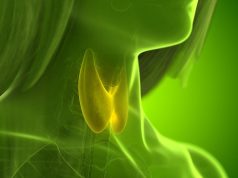Local residents used less rescue medication, had fewer asthma-related hospitalizations, ED visits
MONDAY, April 20, 2020 (HealthDay News) — Retirement of coal-fired power plants or installation of stricter emissions controls is associated with better asthma-related outcomes, according to a study published online April 13 in Nature Energy.
Joan A. Casey, Ph.D., from University of California in Berkeley, and colleagues evaluated health impacts linked to power plant air pollution in Louisville, Kentucky, where one coal-fired power plant was retired and converted to natural gas and three others installed sulfur dioxide (SO2) emission control systems between 2013 and 2016.
The researchers used dispersion modeling, which determined that exposure to SO2 emissions from these power plants decreased after the energy transitions. Difference-in-differences, first-difference, and interrupted time-series modeling all showed that the emissions control installations and plant retirements were associated with a reduced asthma disease burden, as measured by hospitalizations and emergency room visits at the ZIP-code level (three fewer hospitalizations and emergency visits per ZIP code per quarter in the following year). Additionally, individual-level use of rescue medication (determined by digital medication sensors) decreased immediately by 17 percent and was maintained thereafter.
“This is the first study to use digital inhaler sensors to understand the health effects of reducing emissions from coal-fired power plants,” a coauthor said in a statement. “We hope this evidence will encourage government officials to support stricter standards when regulating coal-fired power plants and encourage us towards cleaner power options, thereby protecting the health of the people who live near these facilities.”
Several authors disclosed financial ties to Propeller Health, which provided the digital sensors used in the study.
Copyright © 2020 HealthDay. All rights reserved.








